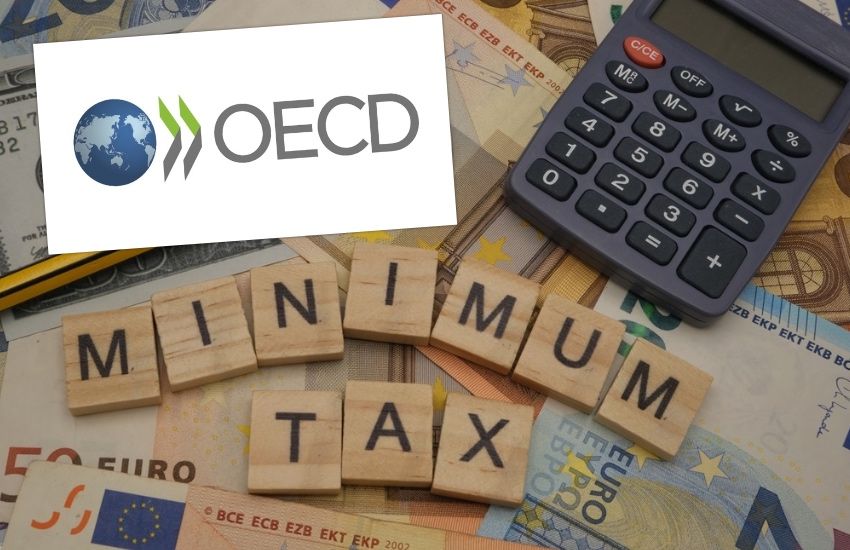


It is expected that Guernsey will implement OECD’s global international corporate tax framework, which could generate additional revenues of £10m for the Bailiwick – a sum that has already been factored into the State’s Tax Review Green Paper.
The international tax rule changes are being led by the Organisation for Economic Co-operation and Development (OECD), and the States said yesterday it is likely Guernsey will implement the Pillar 1 Minimum Standard and the Pillar 2 Subject to Tax Rule, which applies to double tax treaties.
The proposals seek to address issues linked to the increasing globalisation and digitalisation of the economy.
Pillar 1 is a proposal for partial re-allocation of taxing rights, aimed at the largest global multinationals, and Pillar 2 proposes that large multinational enterprises will pay a minimum effective rate of tax of 15% on their profits.
Deputy Peter Ferbrache, President of the Policy & Resources Committee, said that the Bailiwick is supportive of the worldwide approach and establishing “a level playing field”.
“We have worked closely with the OECD in these discussions, and we’ve coordinated our approach with the Isle of Man and Jersey so that the interests of the Islands are well represented,” said Deputy Ferbrache.

Pictured: Guernsey’s most senior politician, Deputy Peter Ferbrache, said changes to international corporate tax rules will have a limited effect on the Bailiwick’s public finances.
Deputy Ferbrache also said the timing of these discussion is highly relevant given the ongoing Tax Review “as we look to safeguard essential services for future generations, in the face of an expected £85m annual shortfall”.
The shortfall in public finances is argued to be because of the changing demographics within the Bailiwick’s population, which will continue to shift towards more old age persons outside of tax contribution boundaries.
“The development of domestic minimum taxes means very large multinational companies would pay a minimum 15% where their profits are generated,” continued Deputy Ferbrache.
“That does have advantages for Guernsey, but this change applies to companies with global revenues of at least 750m euros meaning its impact on local public finances will be limited and it would not on its own fill the significant shortfall we face.
“The Tax Review already assumes that changes to these international corporate tax rules would mean an additional £10m is raised and based on these emerging international agreements alone, that figure still looks like a good estimate."
Out of interest, does anyone know why the ‘Treasury Lead’ no longer appears to leading on this? https://t.co/qnMaNNUpFE
— Gavin St Pier ???????? (@gavinstpier) April 12, 2022
Pictured: Deputy Gavin St Pier, the former Chief Minister, questioned on Twitter why P&R’s Treasury lead, Deputy Mark Helyar, was not commenting personally on the update.
Deputy Ferbrache added that the States are continuing to investigate further ways to generate more revenues from businesses locally, claiming “it remains very unlikely that the full £85m shortfall could be met by changes in corporate taxation, but there may be ways to increase the contribution made by businesses.
“Ultimately, our decision will be based on providing certainty and simplicity. It is very important that we retain an attractive business environment so that we remain competitive in a very finely balanced offshore market.
“We continue both to monitor the position of other jurisdictions and to work closely with industry, to inform Guernsey’s approach to implementing the OECD proposals."
The States have said that technical discussions, which are still ongoing, have continued to develop model rules, commentary, and the multilateral conventions that will be needed to implement them.
The other element of Pillar 2 (GloBE) has been designed so that jurisdictions are not obliged to adopt the GloBE rules, but must accept the application of them by other jurisdictions.
The States claimed they will continue to engage with stakeholders on the most appropriate implementation option for Guernsey and for the multinational groups that operate here.
Comments
Comments on this story express the views of the commentator only, not Bailiwick Publishing. We are unable to guarantee the accuracy of any of those comments.